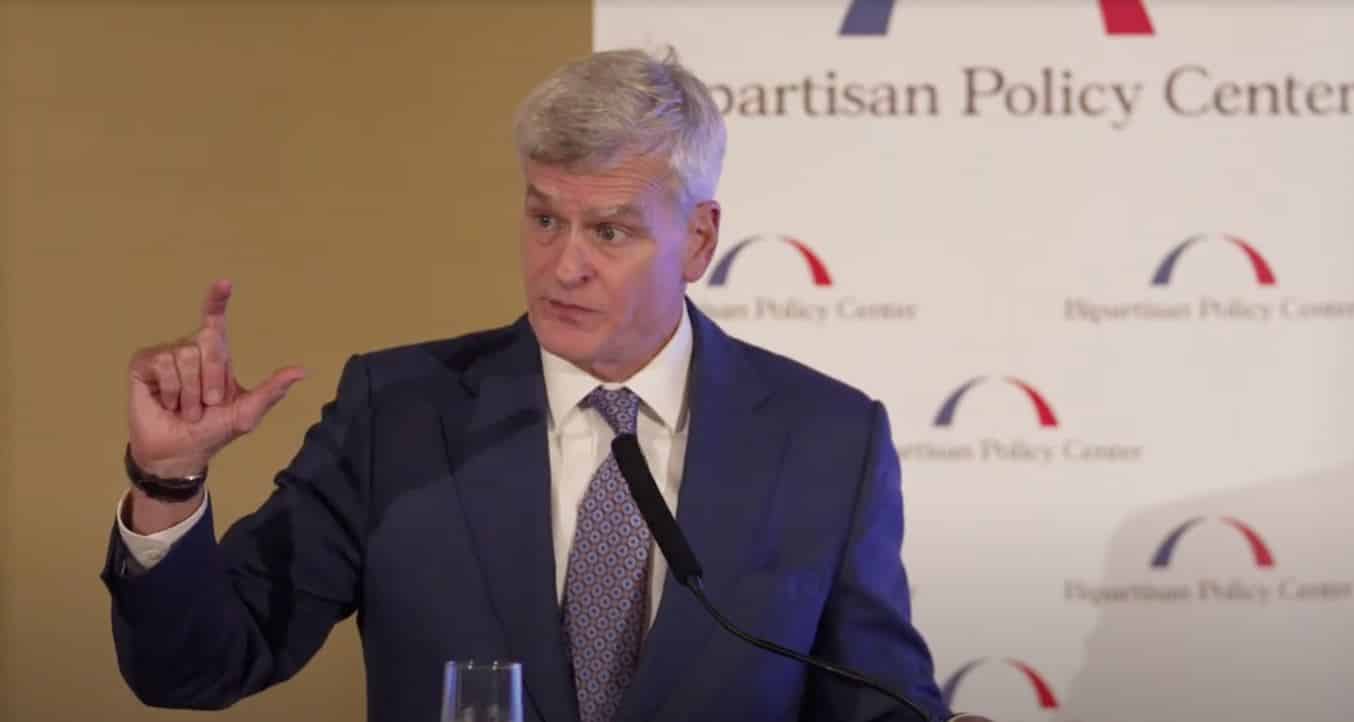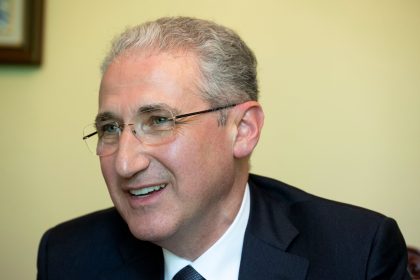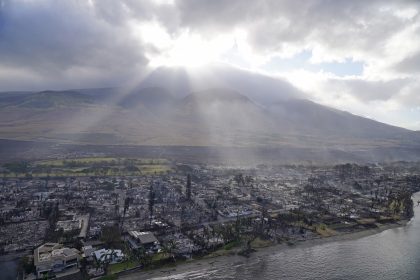‘DAC Day’ Pushes for Sustainable Business Models in New Carbon Removal Industry

WASHINGTON — The 2021 Infrastructure Investment and Jobs Act provided funding not only for roads, bridges, and efforts to curb future pollution, but the bill also made money available for lesser-known innovative technology projects that speak to the harm humans have already done to the environment.
DAC — or Direct Air Capture — is technology that uses chemical reactions to pull carbon dioxide out of the atmosphere. It’s a concept that was suggested right around the turn of the century that is rapidly gaining development, with several commercial plants and numerous smaller projects in planning and operation across Europe and North America.
Some examples include Project Porthos, which transports and stores CO2 from industry in the Port of Rotterdam in empty gas fields beneath the North Sea, and the Alberta Carbon Trunk Line, a pipeline and storage project that captures carbon dioxide from industrial emitters and transports it to central and southern Alberta for secure storage, often in enhanced oil recovery projects.
Environmentalists, businesses, and policymakers are enthusiastic about DAC because it provides an additional tool to achieve ambitious climate goals faster while also developing a new industry.
While not all DAC is carbon removal, DAC is essentially the process of extracting CO2 directly from the atmosphere and then storing it in deep geological formations — or “pull[ing] it out of the air and put[ting] it back in the ground,” according to panelist Noah Deich, acting director of CDR and CO2 Conversion at the Department of Energy’s Office of Fossil Fuel and Carbon Management.
Experts see this not only as one of the key ways to stop global warming by reducing the amount of potentially harmful CO₂ in the Earth’s atmosphere, but also to develop and support an emerging industry where U.S. companies can be global leaders.
“The field is becoming real, and a really big deal,” Sasha Mackler, executive director of the Bipartisan Policy Center’s Energy Program, said as BPC this week held its first ‘DAC Day,’ a multi-panel conference entirely devoted to launching, designing, and financing DAC projects and DAC Hubs.
“Beyond cutting carbon emissions, we need to remove gigatons of carbon from the atmosphere,” Sen. Sheldon Whitehouse, D-R.I., insisted in DAC Day’s opening keynote.
“Carbon capture technologies including DAC have an important role to play to mitigate the damage we are doing to our planet.”
Even if — to combat those who say DAC’s effects are marginal — DAC would be “not a silver bullet, but silver buckshot,” Whitehouse stressed that any and all available tools should be examined, and his Senate colleague Bill Cassidy, R-La., providing the DAC Day closing keynote, agreed.
“[DAC] is going to be a benefit — but of marginal benefit,” Cassidy said. “But you add up margins and you end up with a total solution.”
“[However, DAC] cannot be dependent upon the government constantly funding,” Cassidy said. “It has to have something which the private sector can then drive… Part of the problem with DAC is that you’ve got to have a business model that works. The tech is there, but you need a business model.”
The Bipartisan Infrastructure Investment and Jobs Act included $12.17B for direct air capture and carbon management though FY26, and DAC Hubs are just one program funded in IIJA.
BPC’s DAC Day focused on developing models for DAC as a new climate industry with emerging growth potential for DAC Hubs in the United States that could integrate DAC technology with transportation, storage, jobs creation, and more.
Defined by IIJA, a DAC Hub, for which $3.5B has been allocated for four regional hubs, is “a network of DAC projects, potential CO2 utilization off-takers, connective CO2 transport infrastructure, subsurface resources, and sequestration infrastructure located within a region.”
BPC’s conference was intended to generate ideas toward solidifying customer demand, financing, engineering, determining how all communities could share in a DAC Hub’s benefits, and sowing seeds toward new public-private partnerships.
Among the panelists who hoped to assist with that was Marcius Extavour, vice president of Energy and Climate at XPRIZE.
XPRIZE is a non-profit organization that designs and hosts public competitions including those that, according to Extavour “attempt to get more people doing quality carbon removal” by awarding “bounties” to “credible, reliable, actually functioning carbon removal projects.”
“To be blunt, there’s a lot of talk about carbon removal… but we want to push some of these… ideas into demonstration so that they can be evaluated in the field.”
In addition to IIJA’s allocation for DAC Hubs, the bills’ investment for DAC includes $115M for a DAC Technology prize competition, $307M for CO2 utilization grants, $100M for FEED studies for CO2 infrastructure (like pipelines), $2.1B for a new “CIFIA” CO2 pipeline loan program, $2.5B for an expanded CO2 geologic storage program at DOE, $75M for Class VI grants and permitting at EPA, and $3.474B for large scale CCUS pilots and demos.
Kate can be reached at [email protected]























